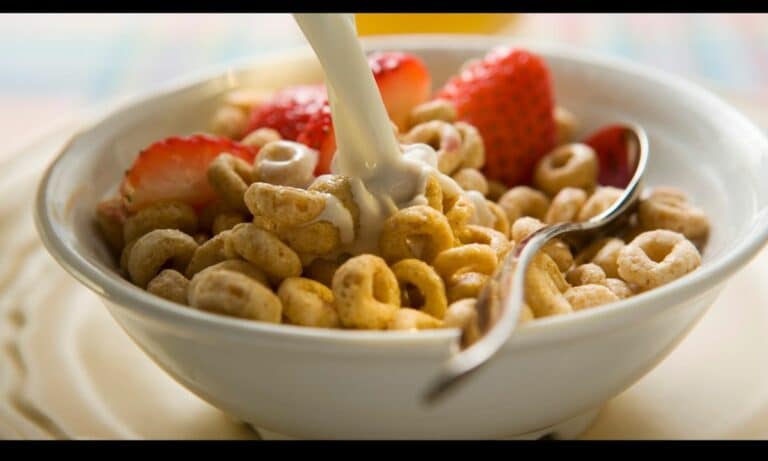Cereals are the most popular breakfast option today. Cereals are easy to make and a convenient breakfast option, which is particularly useful for busy mornings. Iron-rich cereals play a crucial role in carrying oxygen throughout the body. It’s important to include a variety of iron-rich foods in your diet to meet your daily iron needs, especially if you have dietary restrictions or specific nutritional requirements.
Why You Should Eat Cereals?
Cereals come in a wide range of flavors and types, catering to various tastes and dietary preferences. You can choose from different options like whole-grain, low-sugar, gluten-free, and more. Many cereals come with essential vitamins and minerals, such as iron, folic acid, and various B vitamins. This can help you meet your daily nutrient requirements.
Cereals, especially whole-grain varieties, are a good source of dietary fiber. Besides promoting digestive health, fiber helps regulate blood sugar levels and aids in weight management by contributing to a sense of fullness. Cereals provide carbohydrates, which are a primary source of energy for your body. They can help you stay active throughout the day, especially when paired with other nutritious foods like milk and fruit.
Some cereals, especially those made from whole grains, can promote heart health by reducing the risk of heart disease. They contain less saturated fat and cholesterol compared to other breakfast options.
Cereals can be part of a balanced diet and may aid in weight management when combined with portion control and a variety of nutrient-rich foods. You can personalize your cereal bowl by adding fruits, nuts, seeds, or yogurt to enhance its taste and nutritional value.
How important is iron in your breakfast cereal?
Iron is an essential mineral that plays a crucial role in maintaining overall health and well-being. It is needed for several important physiological functions in the body. Here are some of the primary reasons why iron is necessary:
1. Oxygen Transport: Iron is a key component of hemoglobin, a protein found in red blood cells. Hemoglobin binds to oxygen in the lungs and carries it to tissues throughout the body. As a result of this process, oxygen is delivered to cells and used to generate energy in cellular respiration. Without sufficient iron, the body cannot transport oxygen effectively which leads to fatigue and weakness.
2. Energy Production: Iron is also involved in the production of adenosine triphosphate (ATP), which is the primary energy currency of cells. Iron-containing enzymes play a role in various metabolic pathways that help convert nutrients from food into energy.
3. Immune Function: Iron is required for a properly functioning immune system. It is responsible for producing white blood cells, which protect the body against infection.
4. Brain Function: Iron plays a role in cognitive function and brain development.
5. Detoxification: Iron is involved in detoxifying the body by helping to convert harmful substances, such as drugs and toxins, into forms that can be eliminated from the body.
6. Collagen Production: Iron is necessary for the production of collagen, a protein that plays a crucial role in maintaining the health of skin, hair, nails, and connective tissues.
7. Maintaining Body Temperature: Iron helps to maintain body temperature by supporting the function of enzymes involved in heat production.
Iron is essential for health, but both iron deficiency and iron overload can cause harm to the body. Iron deficiency can lead to anemia and a range of symptoms, including fatigue, weakness, and pallor, while excessive iron levels in the body can be toxic and cause organ damage. Therefore, maintaining an appropriate balance of iron through a well-balanced diet and regular medical check-ups is important

5 Iron-rich cereals that keeps you energetic
1. Rice Krispies
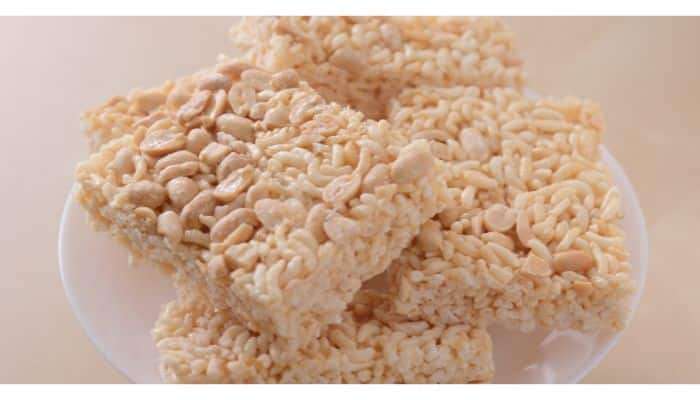
Rice Krispies are preferred by people doing heavy workouts and aerobics as they provide quick energy before a workout. They are absorbed quickly and you get carbs that help for any workout. In general, a 1-cup (30-gram) serving of plain Rice Krispies contains around 4-5% of the daily recommended intake of iron for adults, which is typically around 18 milligrams (mg) per day. However, the iron content can vary slightly depending on the brand and formulation.
It’s worth noting that the iron content may be slightly higher or lower in different varieties of Rice Krispies, such as those with added flavorings or other ingredients. Additionally, the nutritional information on the packaging of the product you purchase should provide the precise iron content for that specific product.
2. Fortified Breakfast Cereals
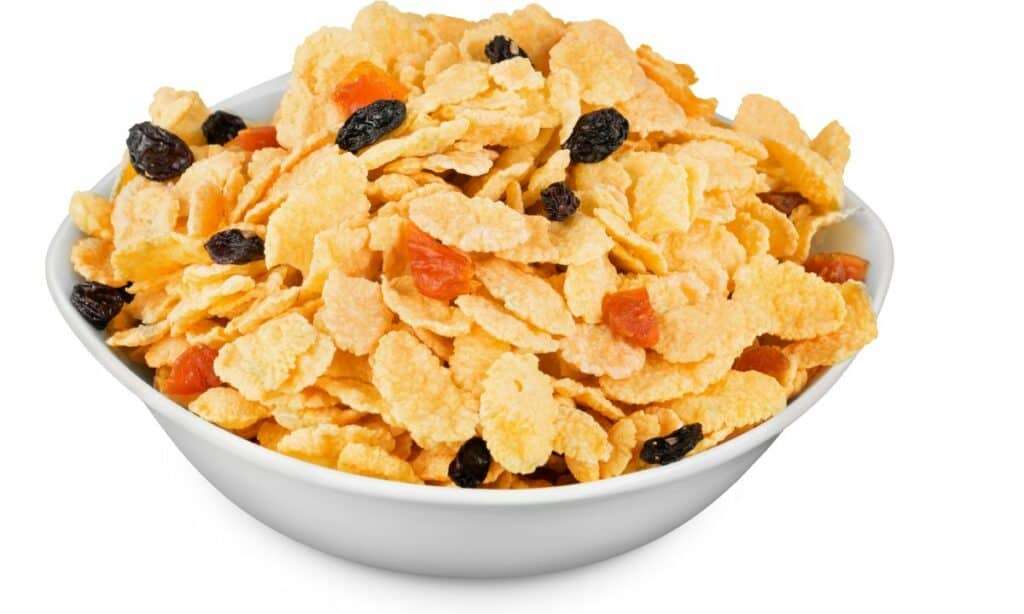
Fortified breakfast cereals are a category of breakfast cereals that have been enriched with additional vitamins and minerals, including iron. Iron fortification is common in breakfast cereals to help provide essential nutrients to consumers. When you look for iron-fortified breakfast cereals, check the nutrition label to see the exact amount of iron they contain.
Here are a Few Brands that you may consider:-
1. Total: Total is a brand of breakfast cereal known for its high level of fortification, including iron.
2. Special K: Special K cereals are often fortified with iron and other vitamins and minerals.
3. Cheerios: Some varieties of Cheerios, like Multi-Grain Cheerios or Whole Grain Cheerios, are fortified with iron and other nutrients.
4. Raisin Bran: Many brands of Raisin Bran cereal are fortified with iron, making them a good source of this mineral.
5. Wheaties: Wheaties is a cereal brand that is often fortified with iron and other vitamins and minerals.
6. Bran Flakes: Bran flakes cereals, regardless of the brand, are typically fortified with iron.
When choosing a fortified cereal for its iron content, be sure to check the nutrition label for the specific amount of iron per serving, and consider complementing your cereal with other iron-rich foods to meet your dietary needs. Iron-fortified cereals can be a convenient way to increase your iron intake, especially for individuals who may have dietary restrictions or preferences that limit their consumption of other iron-rich foods.
3. Oatmeal
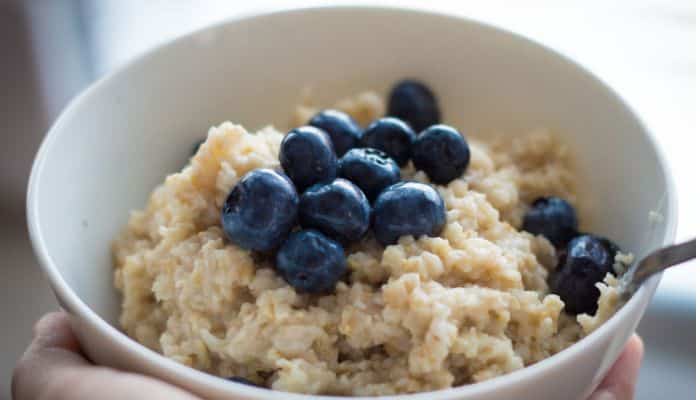
The iron content in oatmeal can vary depending on factors such as the type of oats used and how it is prepared. On average, a 1-cup (cooked) serving of plain, unfortified oatmeal typically contains about 2-3 milligrams of iron, which is approximately 10-15% of the recommended daily intake for adults.
If you are looking to boost your iron intake, you can add iron-rich toppings or ingredients to your oatmeal, such as:
Nuts and seeds: Almonds, pumpkin seeds, and sunflower seeds are good sources of iron.
Dried fruits: Raisins, apricots, and prunes are examples of dried fruits that contain iron.
Fresh fruits: Some fruits, like strawberries and kiwi, are high in vitamin C, which can enhance iron absorption from plant-based sources.
Additionally, oatmeal contains non-heme iron, which is not as readily absorbed by the body as the heme iron found in animal products. Iron absorption from plant-based sources can be enhanced by consuming vitamin C-rich foods along with oatmeal, as mentioned above, and avoiding calcium-rich foods and beverages (such as dairy products) at the same time.
3. Muesli
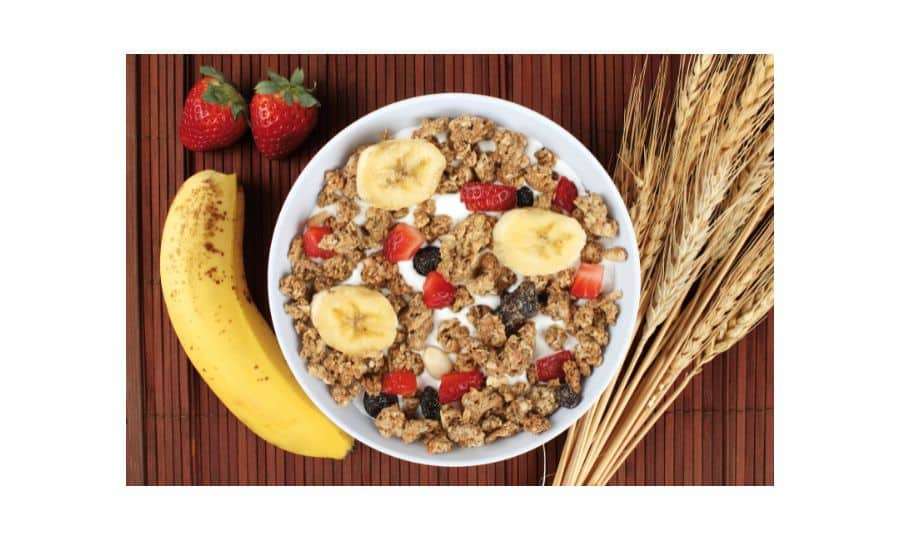
There are many muesli products that have high iron content. Muesli is a breakfast cereal made from a mixture of rolled oats, dried fruits, nuts, seeds, and sometimes grains like wheat or barley. The iron content in muesli can vary depending on the specific ingredients used and the brand or recipe. Generally, muesli can contain a moderate amount of iron, primarily from the rolled oats and any added nuts or seeds.
The iron content in a serving of muesli can range from 2 to 4 milligrams or more per 1/2 cup to 1 cup serving, depending on the ingredients and portion size. This can contribute to your daily iron intake, but it’s not typically considered a high source of iron.
To boost the iron content of your muesli, you can consider adding iron-rich toppings or ingredients like nuts and seeds, as well as consuming it with foods high in vitamin C to enhance iron absorption. Additionally, some commercial muesli products may be fortified with additional vitamins and minerals, including iron, so checking the nutrition label can give you a better idea of the iron content in a specific brand or product.
5. Quinoa Flakes
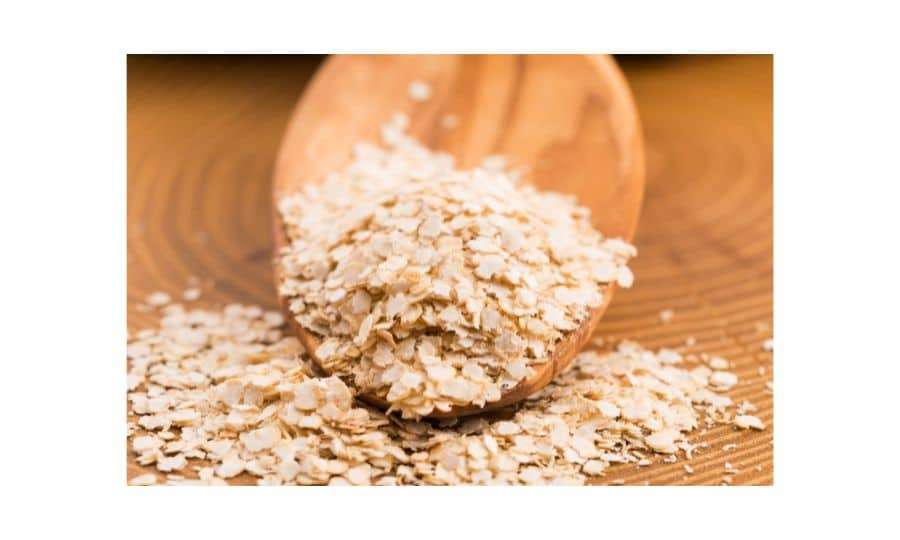
Quinoa is a good source of plant-based iron. Quinoa flakes are a nutritious option that can be used as a breakfast cereal or in various recipes. Like regular quinoa, quinoa flakes contain some iron, although the exact amount can vary depending on the brand and preparation. Generally, quinoa flakes contain around 2-3 milligrams of iron per 1/2 cup serving when dry.
While quinoa flakes do provide some iron, they are not considered a particularly high source of this mineral. However, they can be part of a balanced diet that includes other iron-rich foods to meet your daily iron needs. The absorption of iron from quinoa flakes can also be enhanced by eating them with fruits or vegetables high in vitamin C and avoiding calcium-rich foods or beverages.
Start with a bowl of Iron-rich cereal and be active throughout the day.
Conclusion
It is always a good idea to check the nutrition labels to check the iron content and choose according to your dietary preferences.
Consider pairing Iron-rich cereals with foods high in vitamin C as Vitamin C enhances the absorption of non-heme iron. For that purpose, You can also add fruits such as oranges, kiwis, or strawberries to maximize iron absorption.
However, it is essential to make proper choices when selecting cereals. Many sugary cereals provide little nutritional value and can lead to energy crashes and weight gain. To make the healthiest choice, look for cereals with Iron Content, Whole grains, low sugar content(no more than 10 grams of total sugar and 5 grams of added sugar per serving), and a good balance of nutrients.
Spread the word about the benefits of incorporating cereals into a balanced diet with your friends and family. Together, we can make healthier choices and improve our overall well-being.
Make cereal a part of your daily routine, and you’ll be on your way to a healthier, more energetic, and fulfilling lifestyle!”
Take a Step Towards a Healthier You Today! Choose Wisely.
